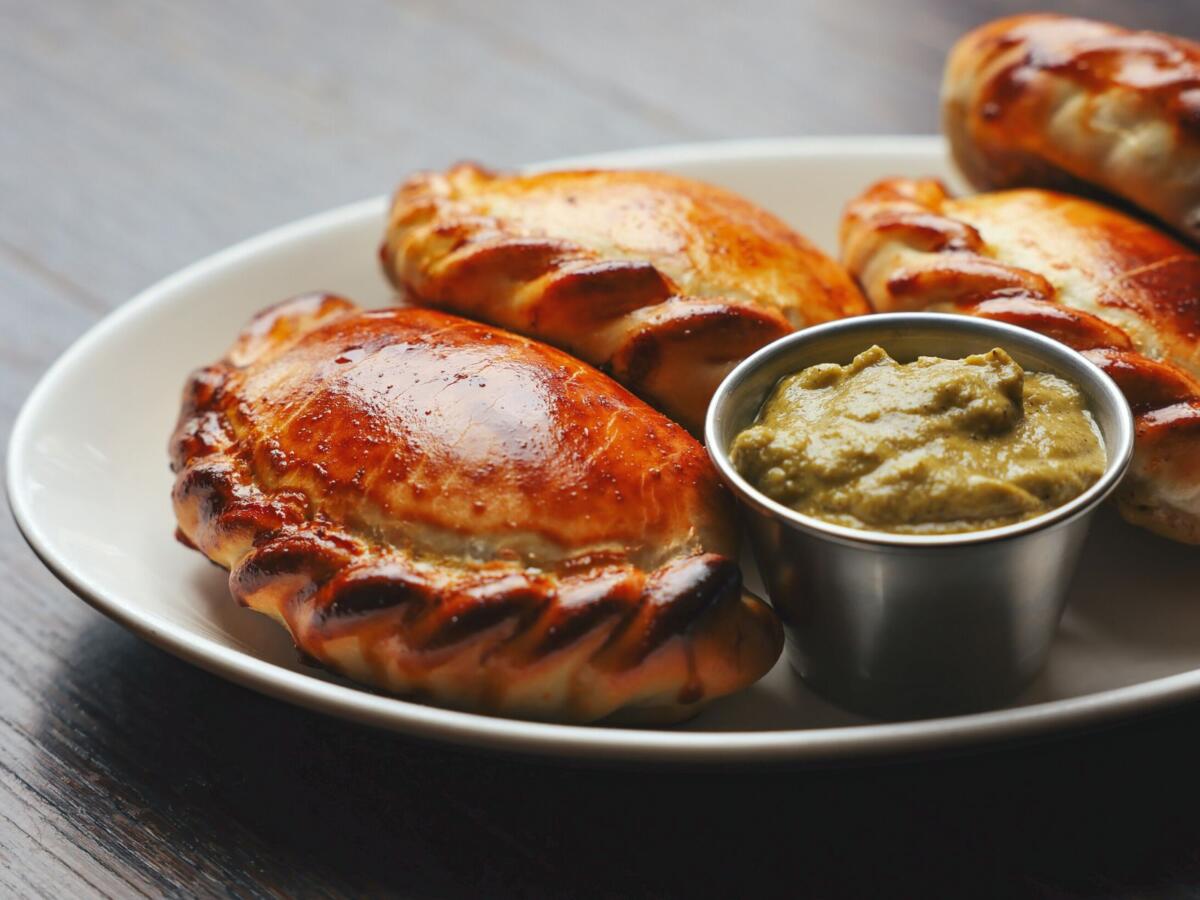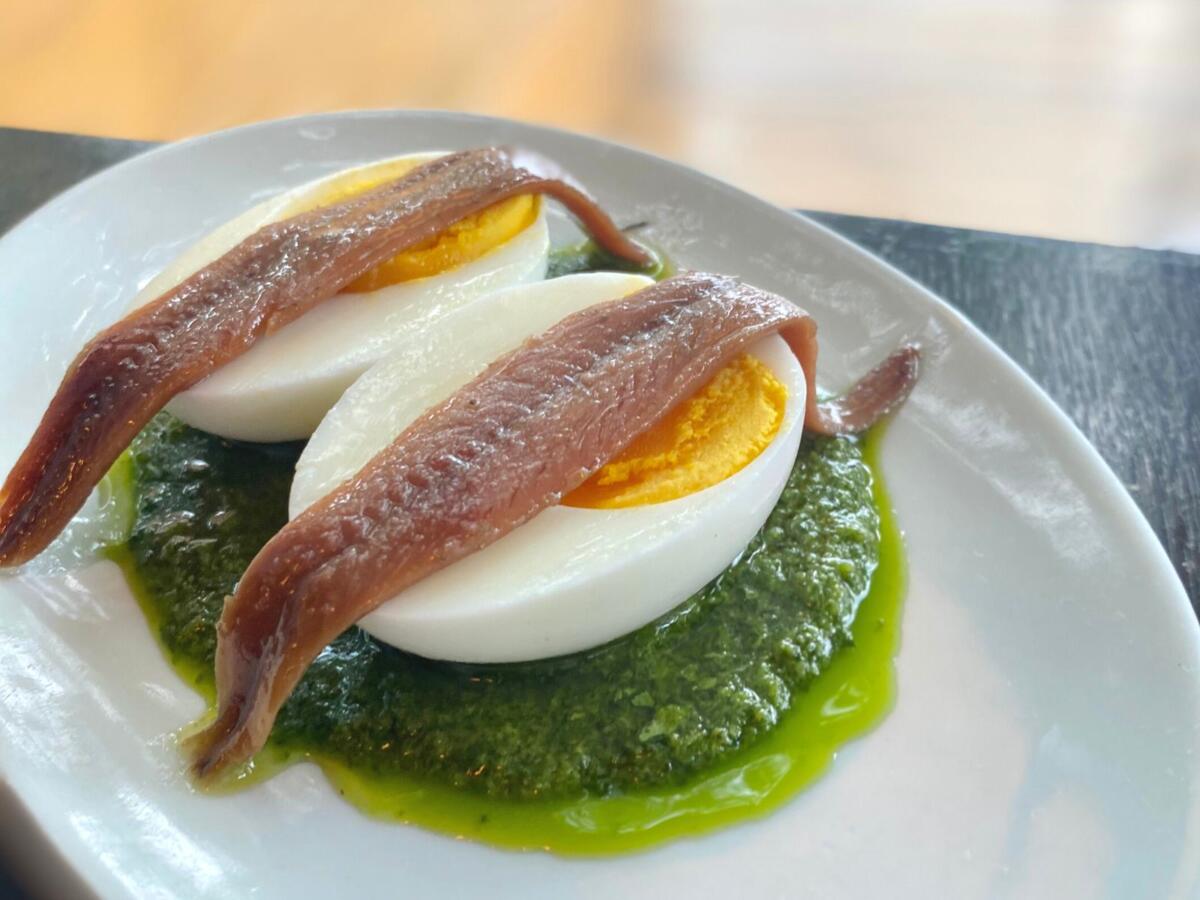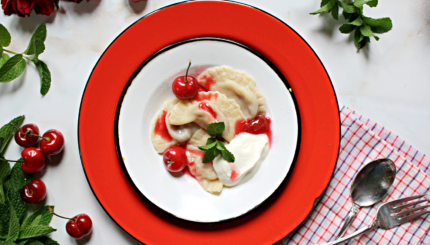“I’m rolling empanadas as we speak,” Ari Schor tells me during his morning prep at Beba, the exceedingly popular Montreal restaurant he and his brother Pablo founded in 2019. The affable chef and co-owner laughs while he multitasks, interrupting our chat to receive an order of caviar from one of his suppliers.
That relaxed, homey connection translates into the Beba experience, when guests fill the intimate, 28-seat dining room to enjoy Schor’s cooking. Inspired by his Argentinian homeland, his Jewish roots and his past experience as chef de cuisine at one of Montreal’s top French restaurants, Liverpool House, Beba is one of the city’s hottest eateries.
“When people walk into Beba, I want it to feel very warm. I want it to feel inviting,” Schor says. “The spirit is the same, no matter if people are coming in for a few plates or to make a night of it.”
Whether serving the empanadas his father taught him how to make (Schor attributes them to keeping the business going during the lockdown, along with their “Schor-dash” in-house delivery) or his upscale knishes with dollops of caviar, the roots of Schor’s innate hospitality come down to one thing: Shabbat dinners.
The Nosher celebrates the traditions and recipes that have brought Jews together for centuries. Donate today to keep The Nosher's stories and recipes accessible to all.
Schor and his parents, along with his brother and co-owner Pablo, immigrated from Ushuaia, Argentina, the southernmost city in the world, to Winnipeg, Canada in 1997 as part of a recruitment program from the local Jewish Federation. (Ari had his bar mitzvah in Winnipeg a few months after arriving.) In Winnipeg, Shabbat dinners took on extra significance, as they’d never lived in a city with extended family before: aunts, uncles and cousins who had already settled in Winnipeg gathered around the table weekly, and it mattered.
The traditional dishes the family enjoyed at those meals were shaped by many influences: the Syrian traditions of Schor’s maternal side, his father’s Ashkenazi roots and the Spanish and Italian influences of Argentinian cuisine, a byproduct of the immigration that underpins his life experience.

“One of the first things we made at Beba was my family’s brisket,” Ari says. “But it’s not your traditional one, with onions; it’s braised in tomato sauce, with potato gnocchi on the side.”
Schor’s dishes manifest the complex roots of his background and culinary interests, always underpinned by the open-armed welcome he learned at home. “We didn’t always have family close to us, but every time we’d visit our relatives in Buenos Aires, it was a big deal,” Schor says. “You have that host mentality worked into you from a young age, helping your mom set the table, and all the food that comes with it. It always feels like a special occasion, even if it’s just family coming over.”
Both boys eventually left Winnipeg to pursue their love of food and hospitality in some of Canada’s top restaurants in Montreal and Vancouver: Ari in the kitchen and Pablo front- of-house, honing his wine knowledge and mastering a range of innovative cocktails. When the brothers decided to move forward on the passion project of having their own restaurant, naming it after their elderly paternal grandmother, their Beba, was a shoo-in. (She still offers advice about Ari’s flan, one of Beba’s most popular desserts — though it’s his own recipe.)
“Our Jewish heritage seeps into the food, but it’s not necessarily ever going to be traditional,” Schor says. To wit, his artful Potato Knishes with Queen Kaluga caviar are but one example of the chef’s inspiration, playfulness and creativity.
“Much is said about ‘elevating’ peasant dishes. This ain’t it. This is our culture. This is tradition,” he writes in an Instagram post dedicated to the story of Beba’s knish, a schmaltzy stretchy dough wrapped around unpeeled smashed potatoes and caramelized onions. They’re currently part of a five-course tasting menu on offer; Beba’s menu is dedicated to seasonality and changes on a frequent basis. Also on the menu is Iwashi Montadito — fatty, pristine Japanese sardines marinated in salt and vinegar are placed on a bed of butter, horseradish (instead of chrain) and chives atop a homemade sesame toast (mimicking a bagel) — a dish that nods to both Jewish and Spanish food. “Those sardines are only a few degrees of separation from schmaltz herring, but we’ve done it our way,” Schor says.

Doing it their way, with a generosity of spirit, is a winning formula for Beba. “It’s more than just the food that makes a place Jewish; it’s leading by example for our team,” Schor says. “It’s our level of warmth, combined with professionalism, that make Beba unique. Both have to be there, and you can’t have one without the other.”
Schor’s knish Instagram post says one more thing: “It tastes like home.” He’s right about that.



